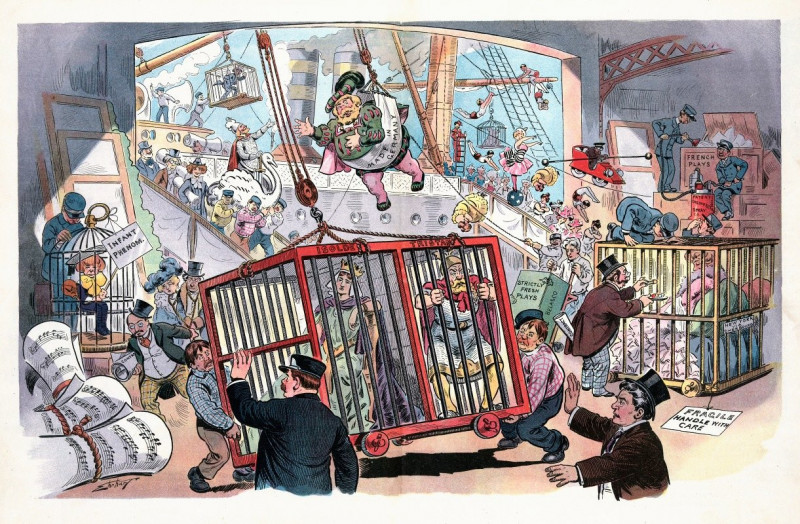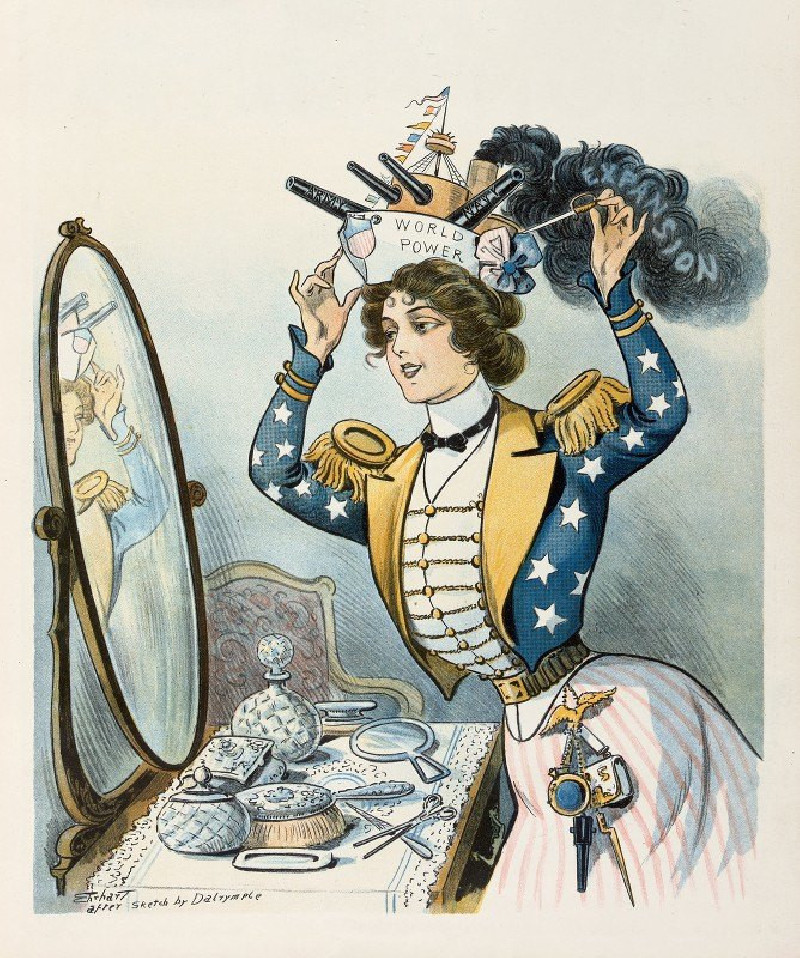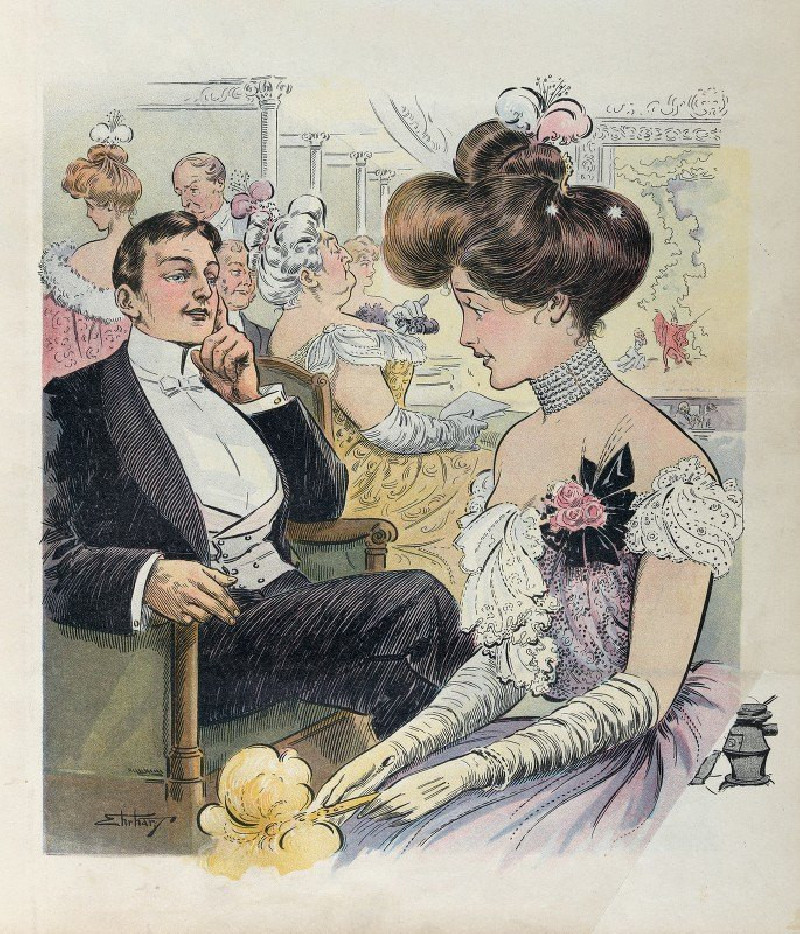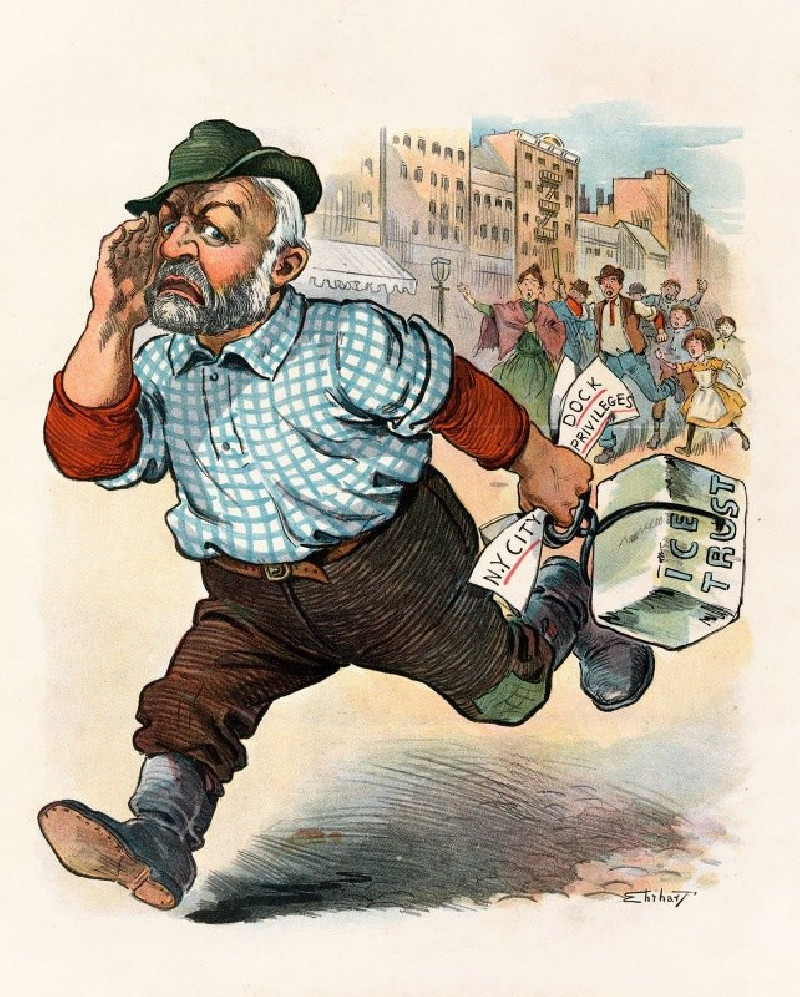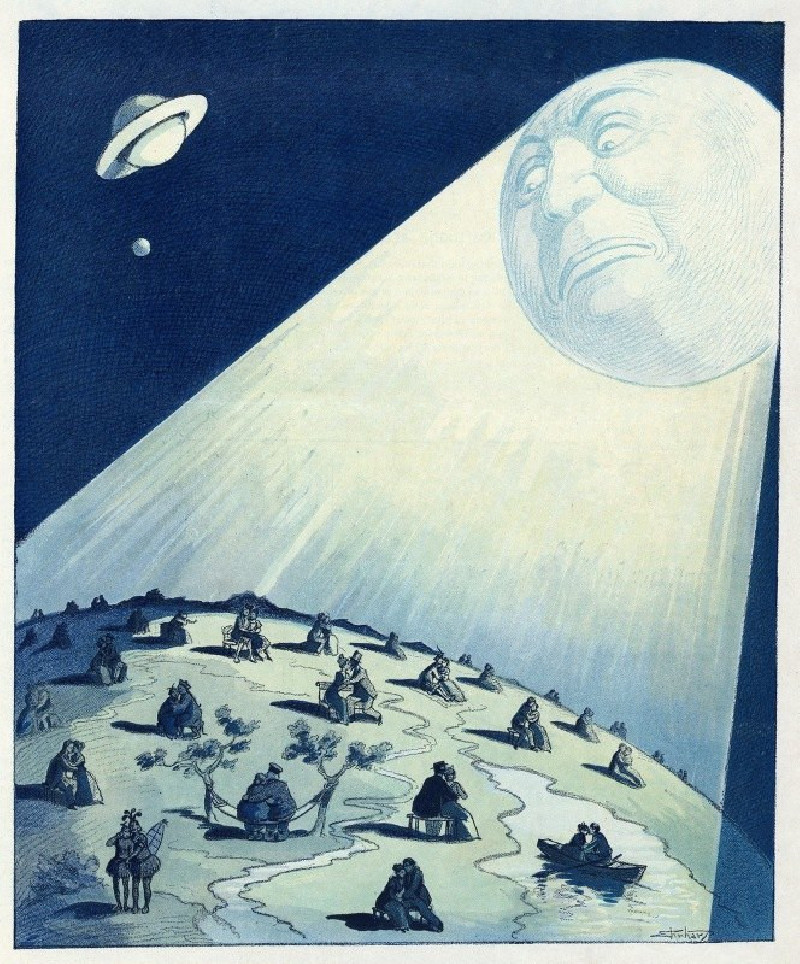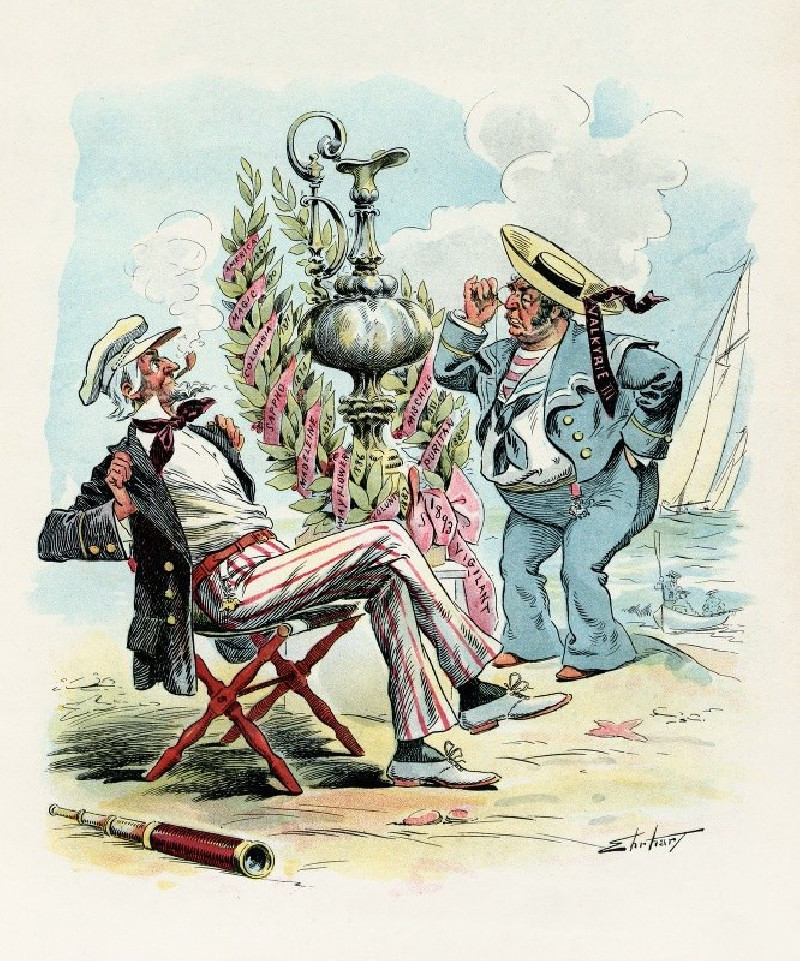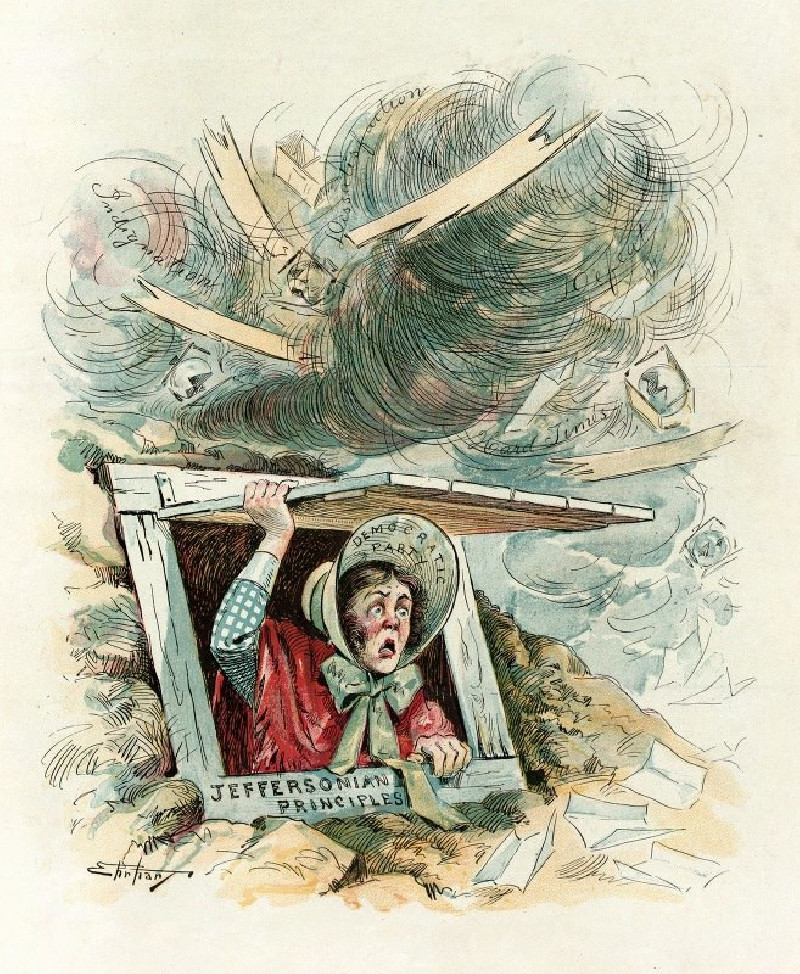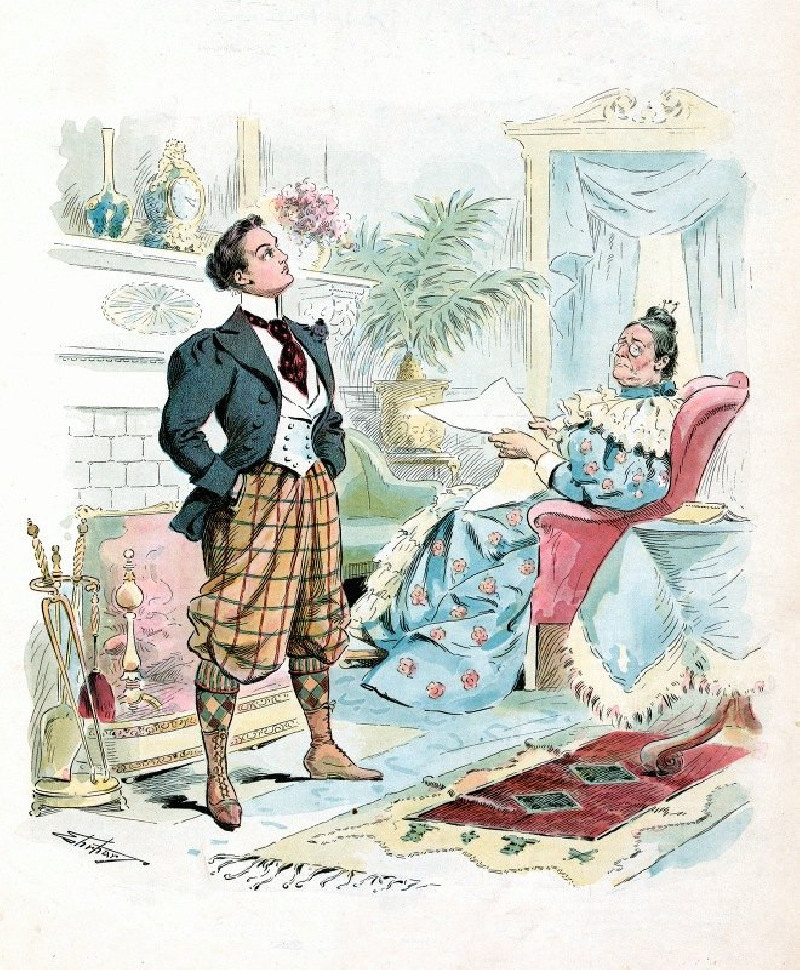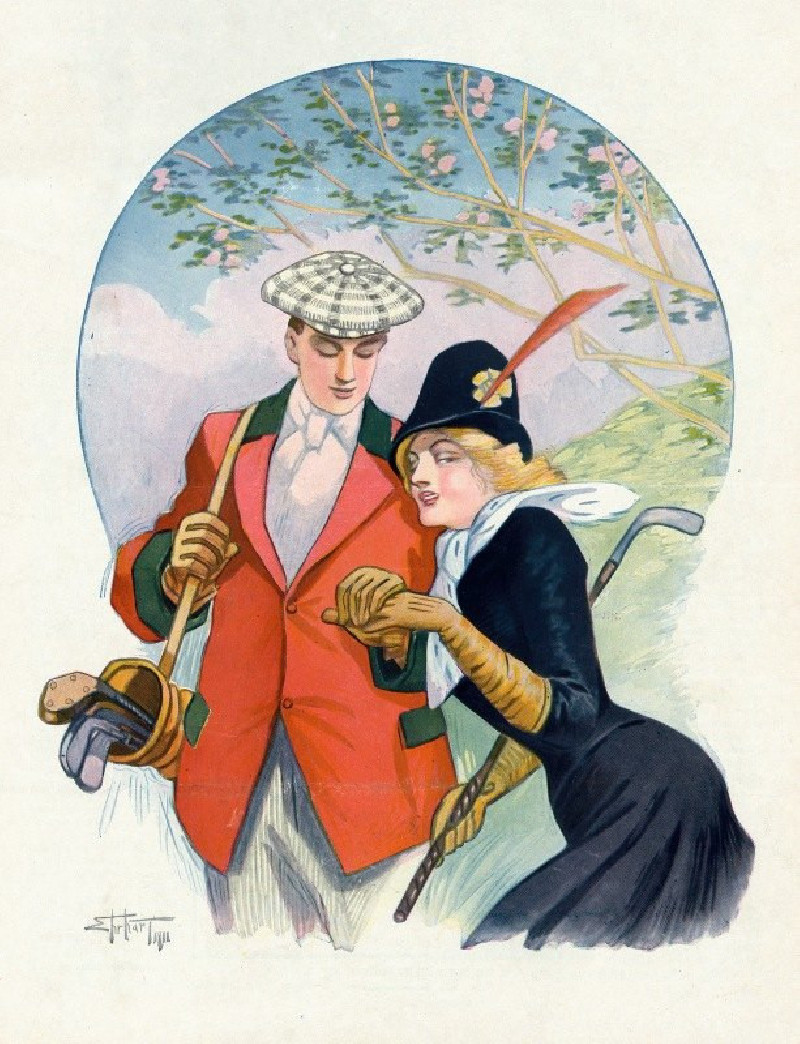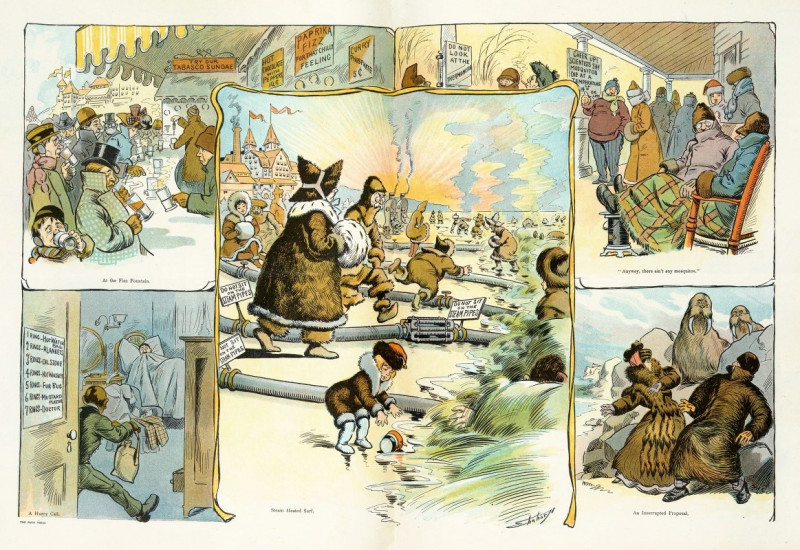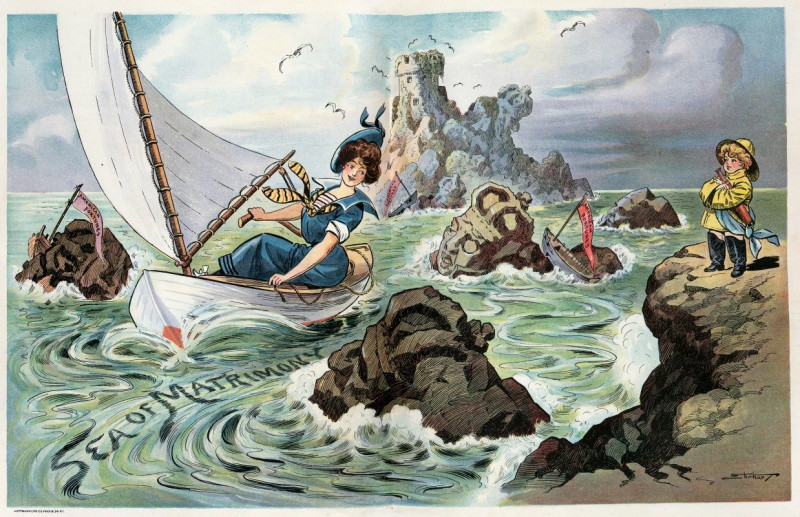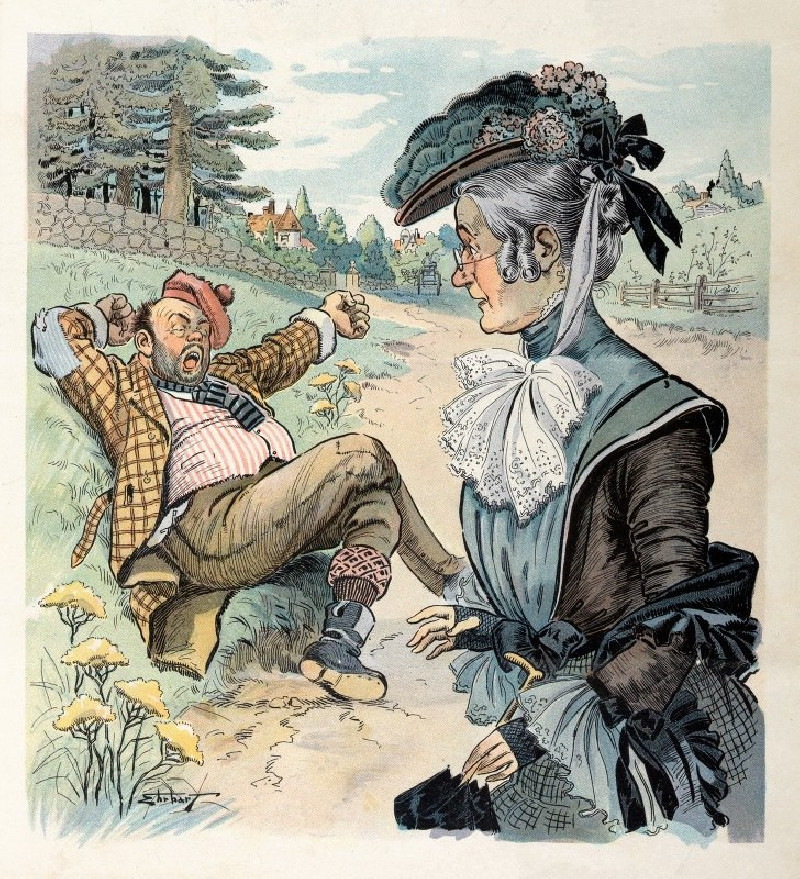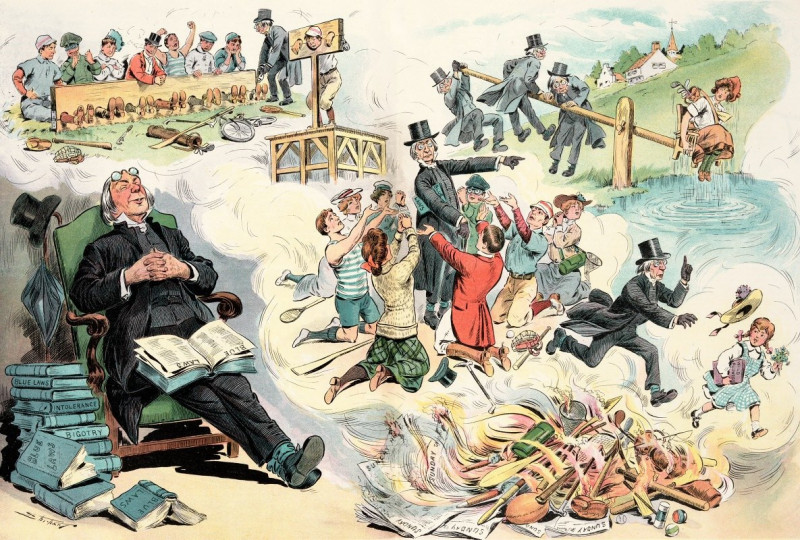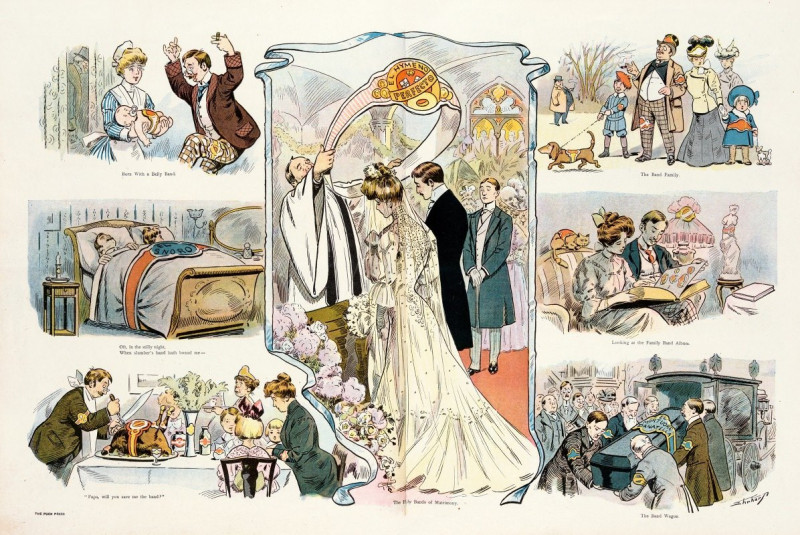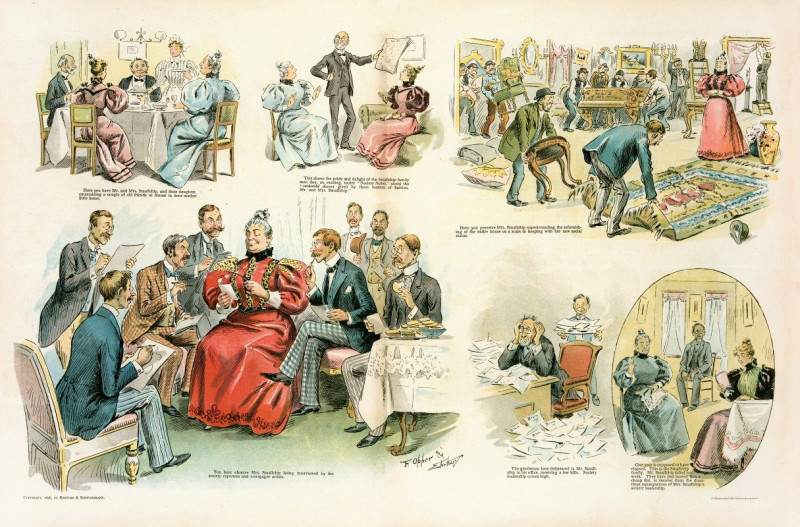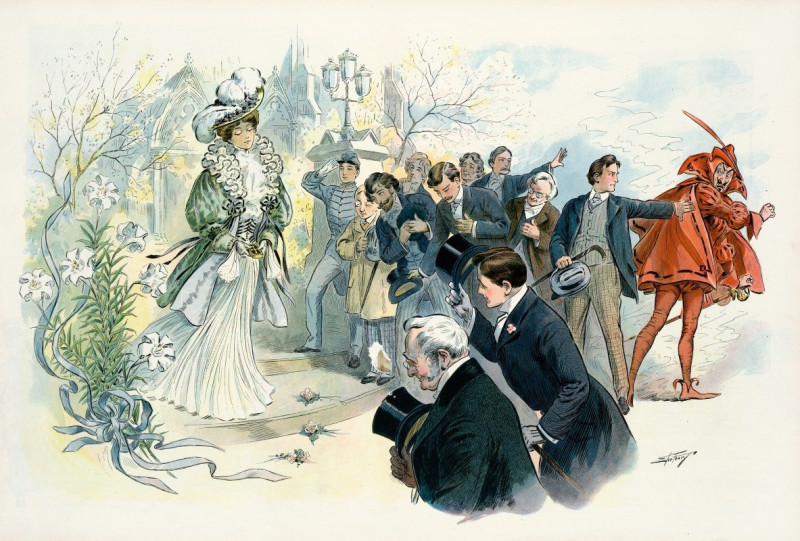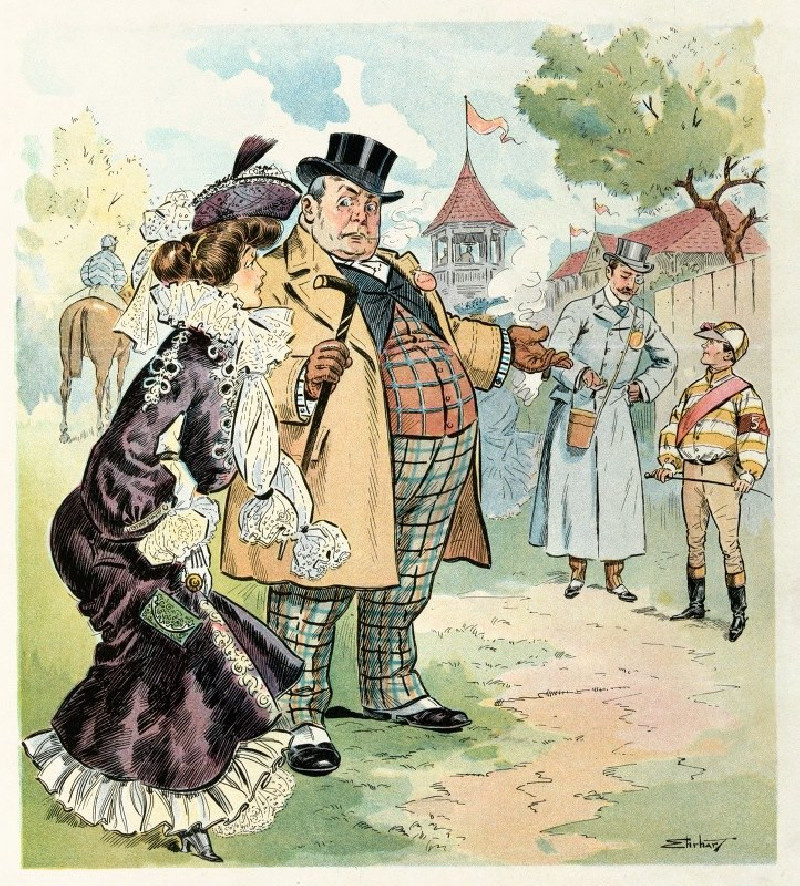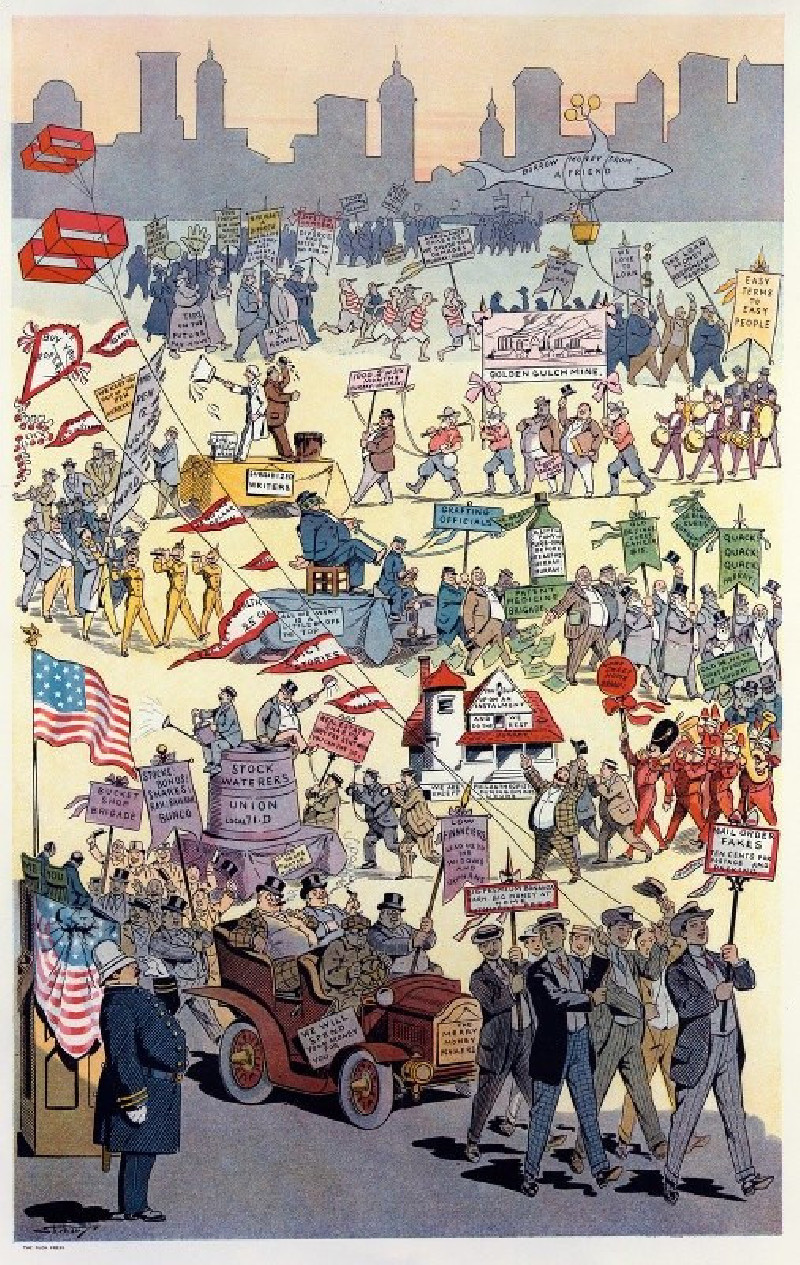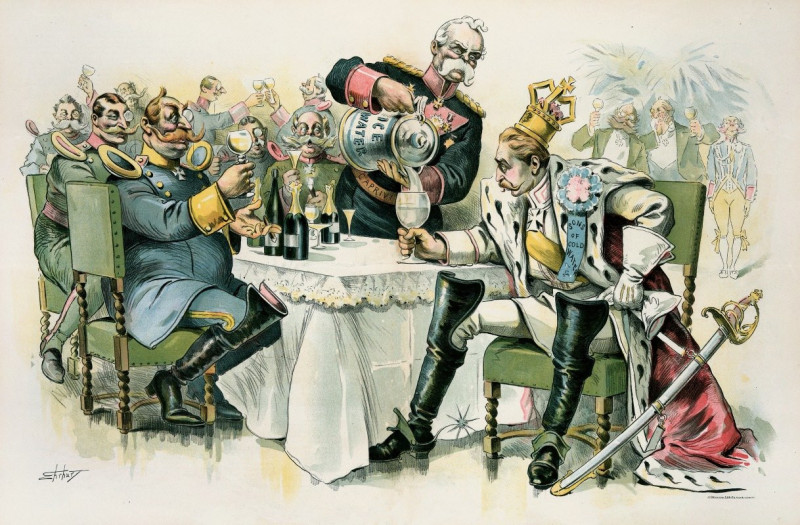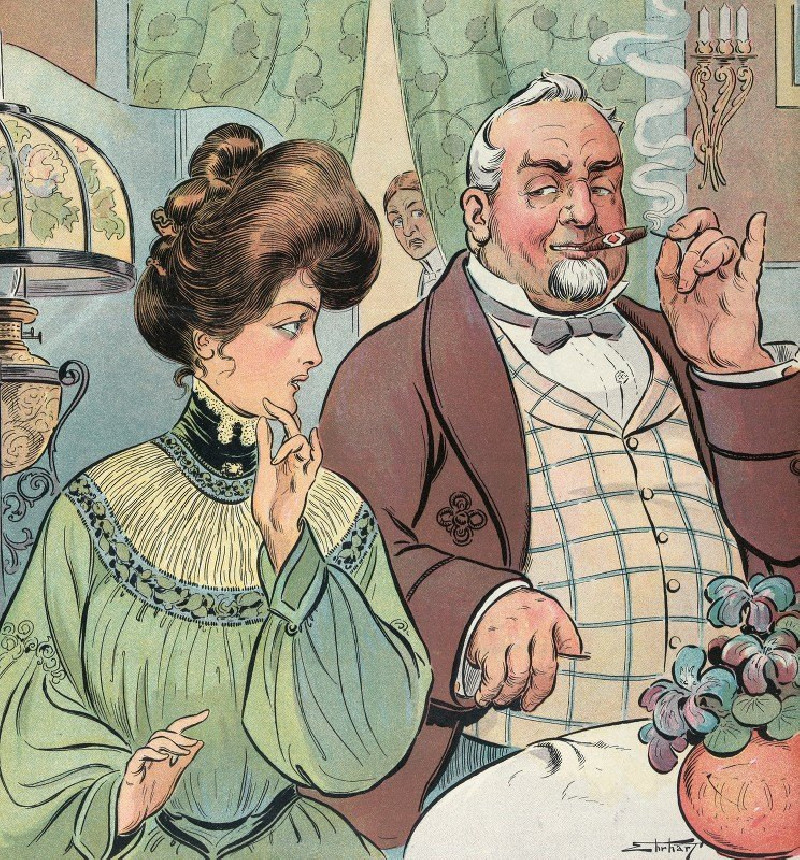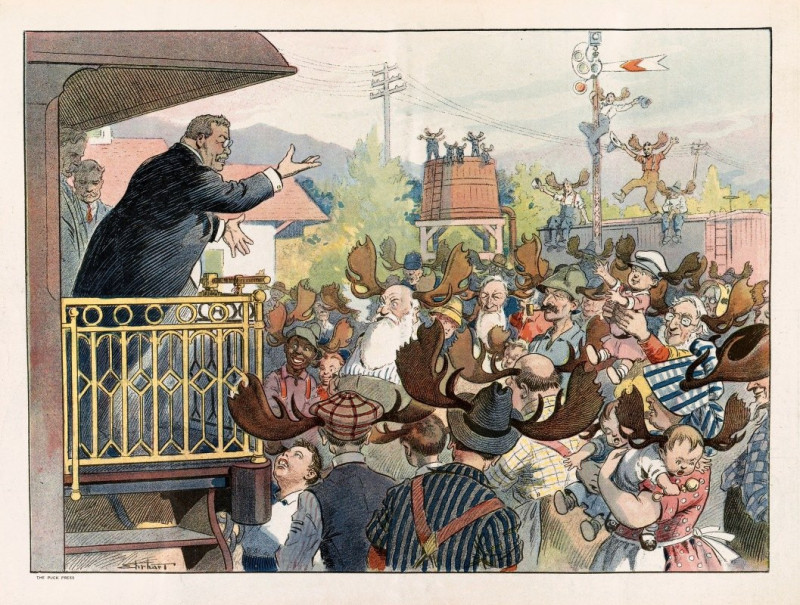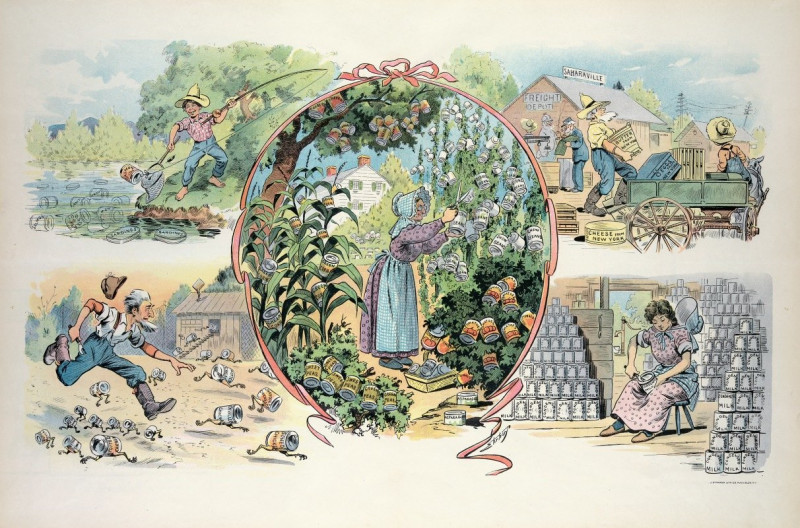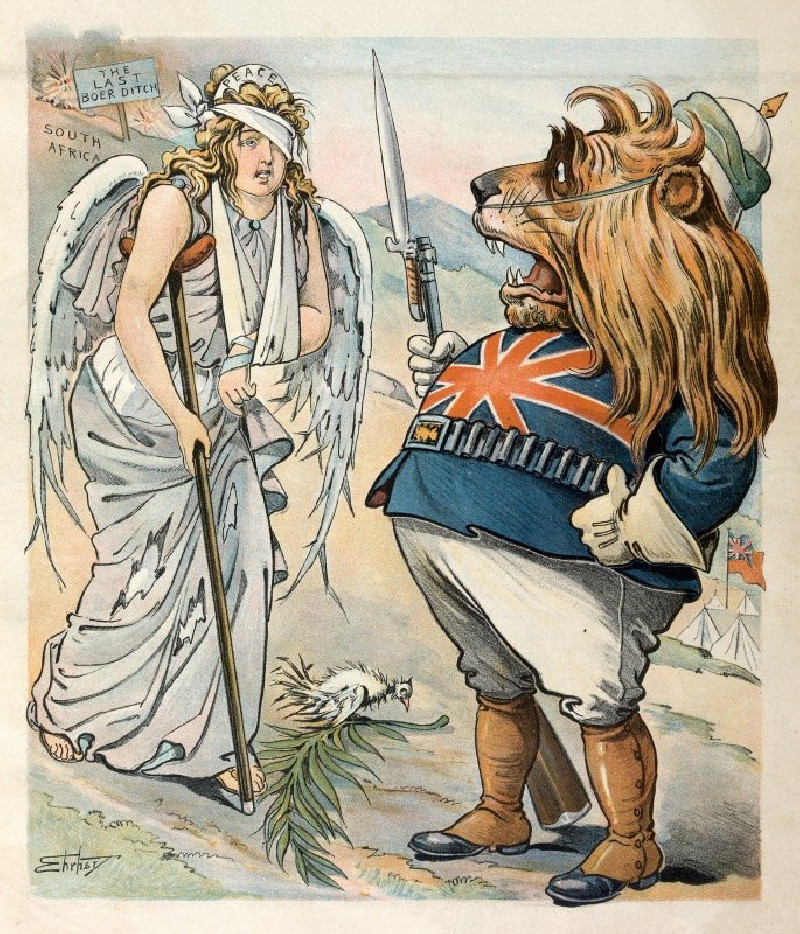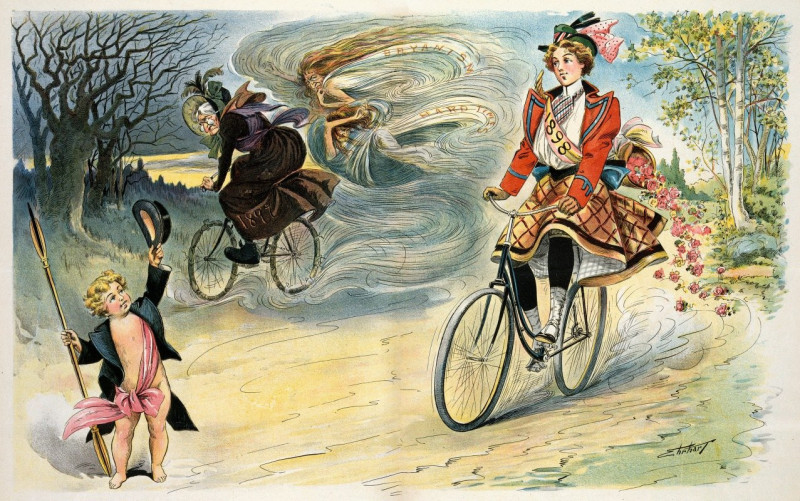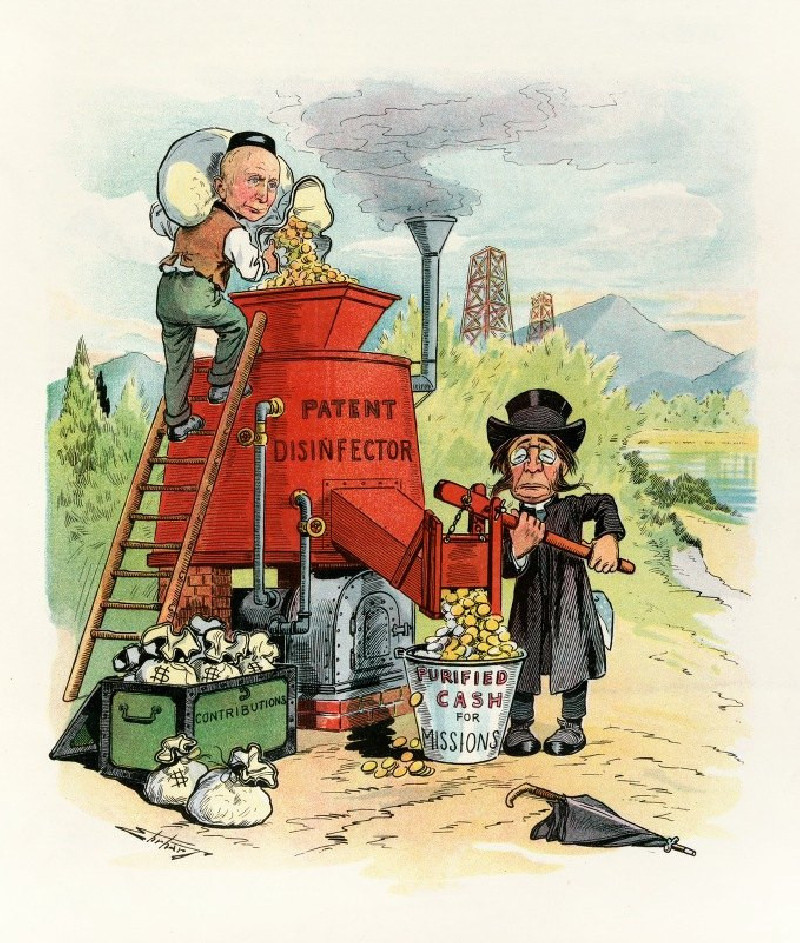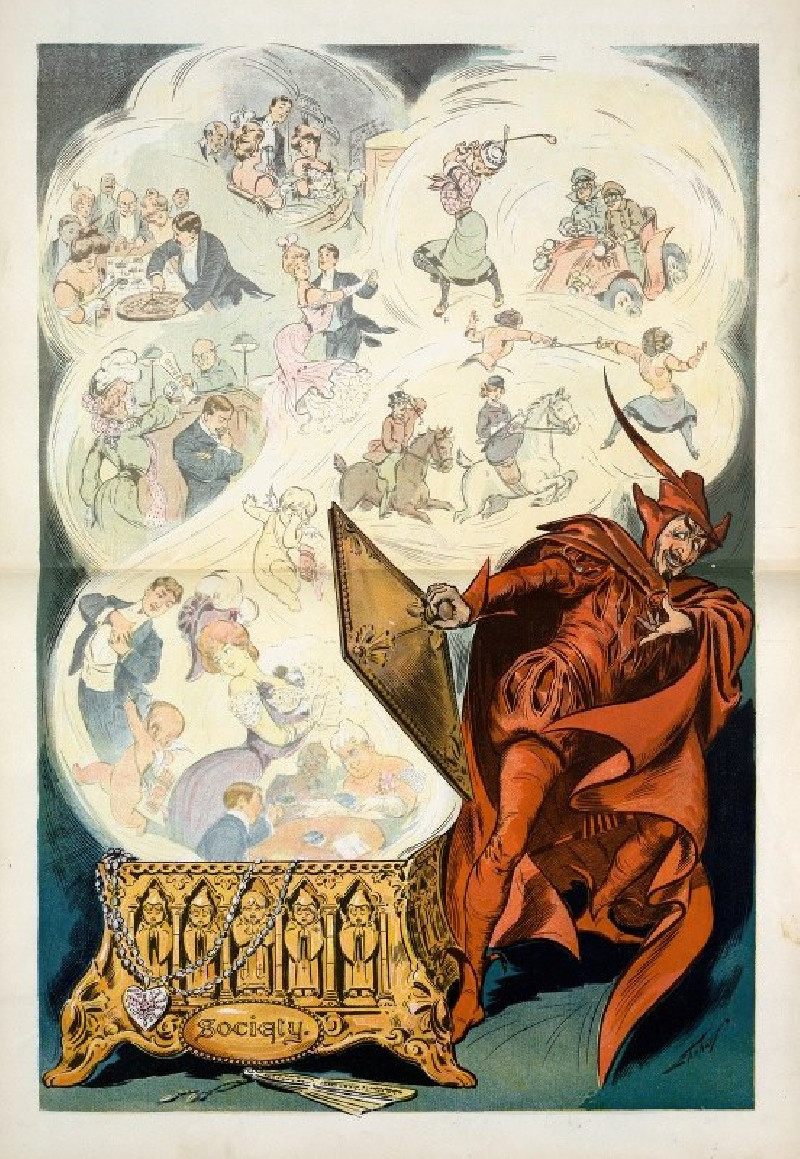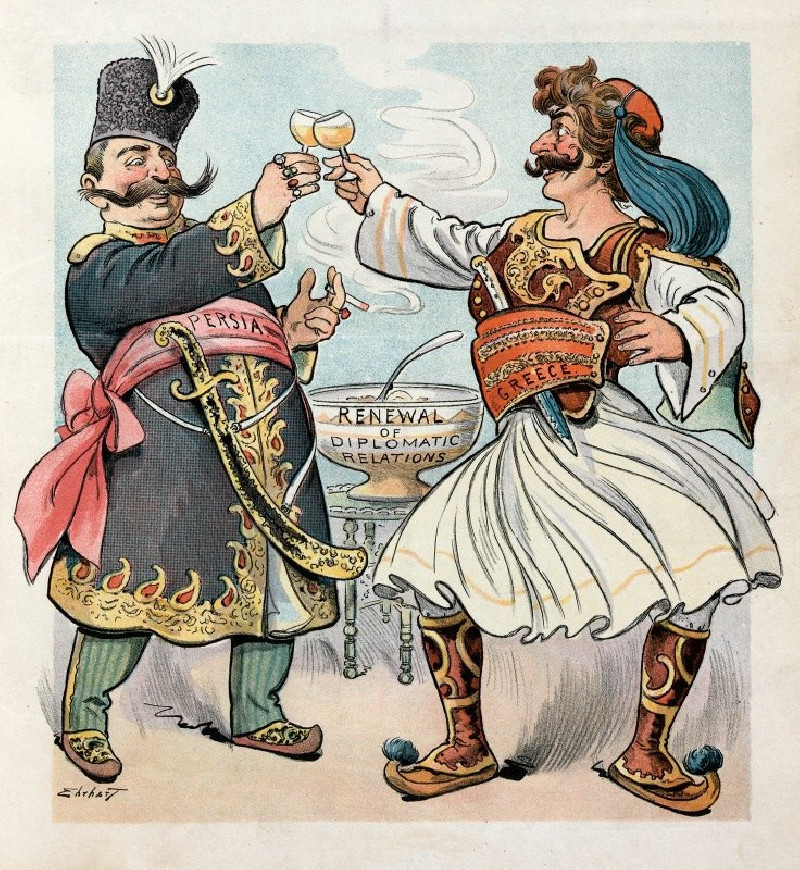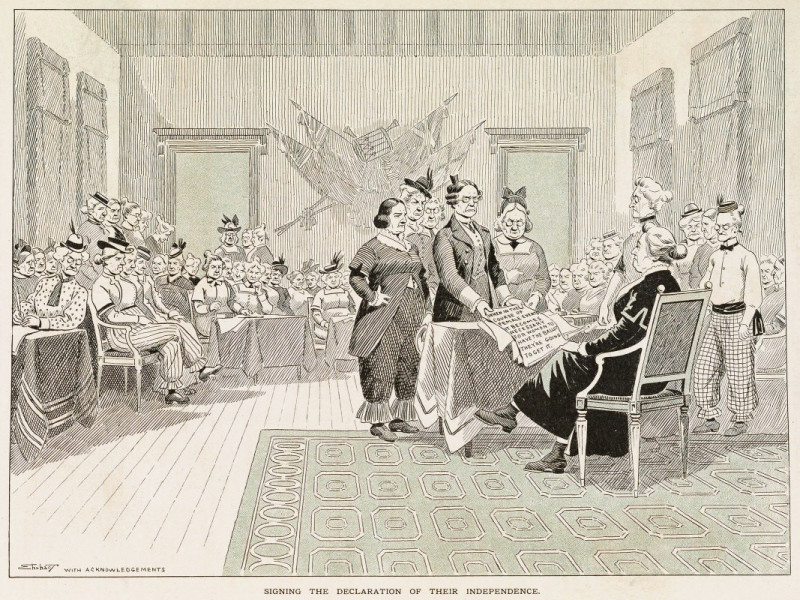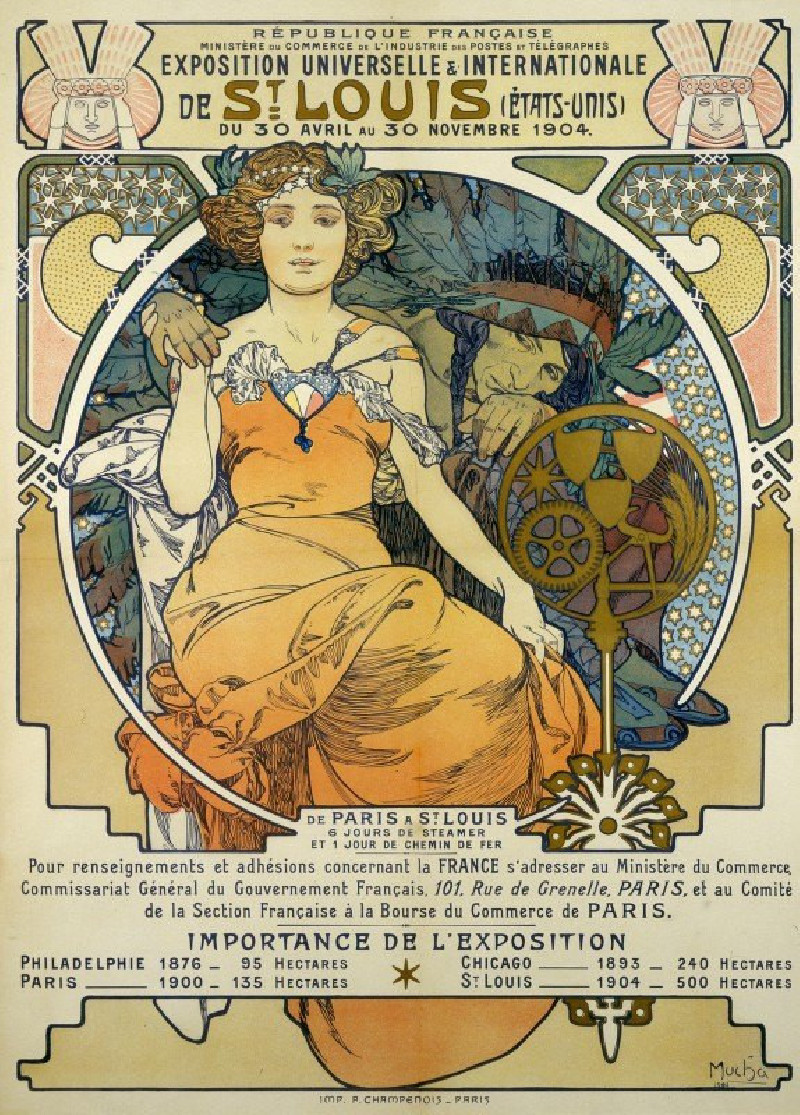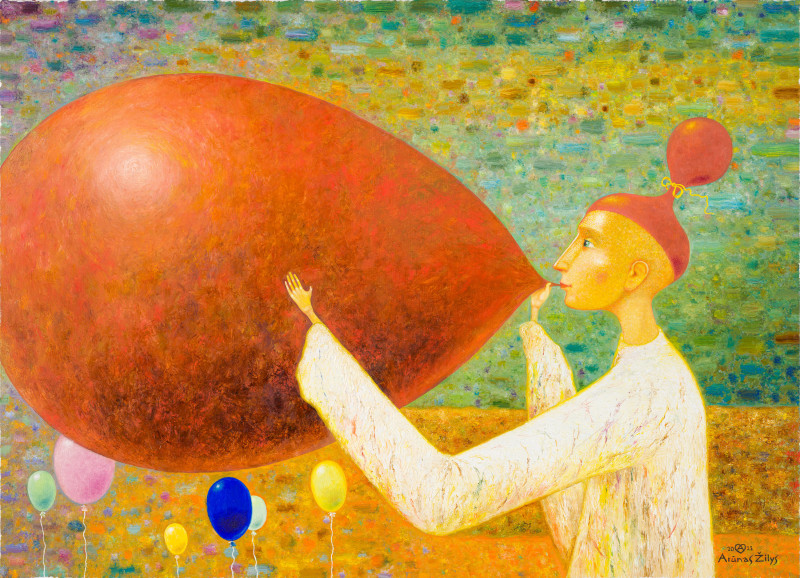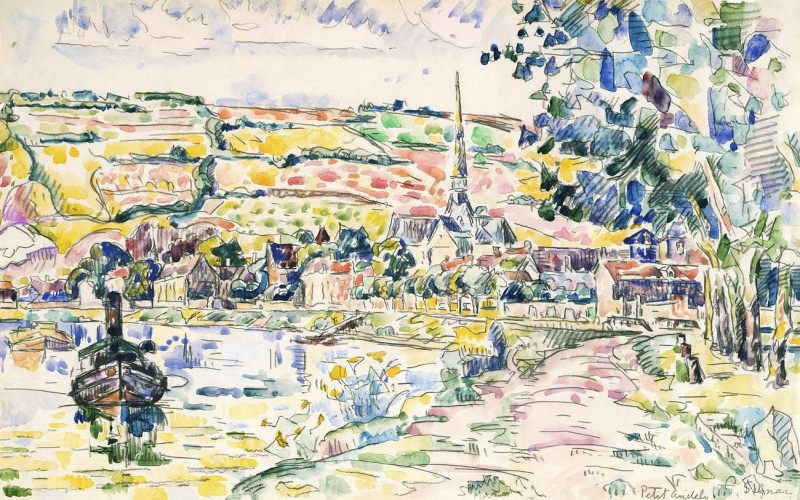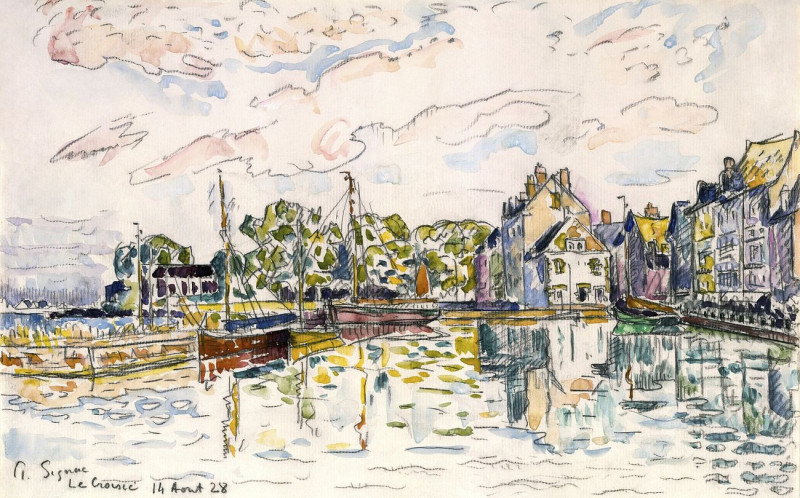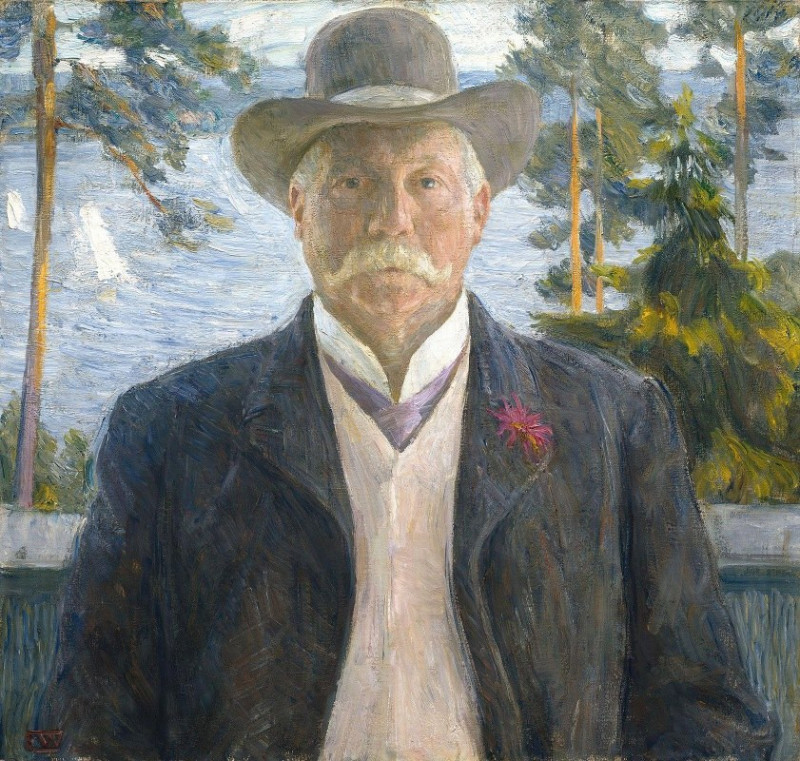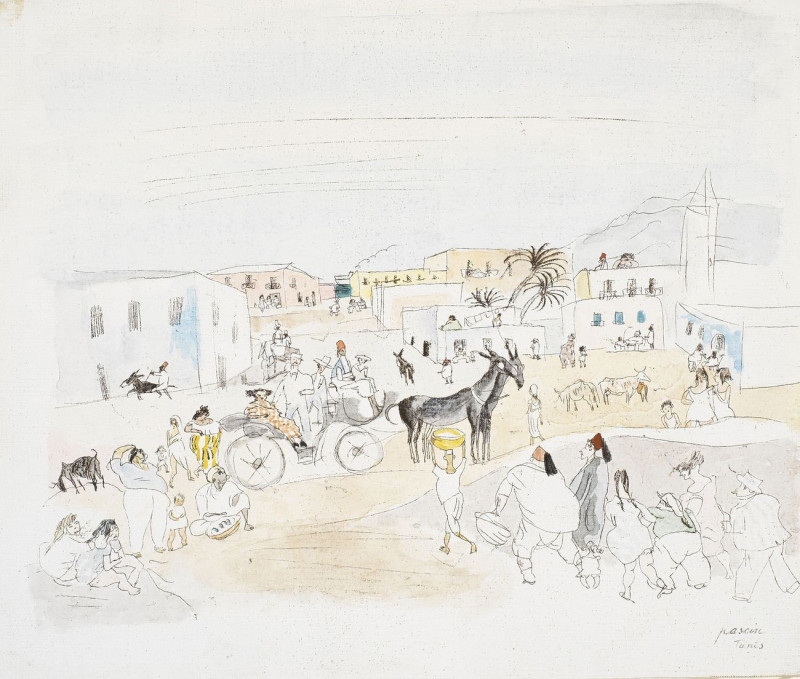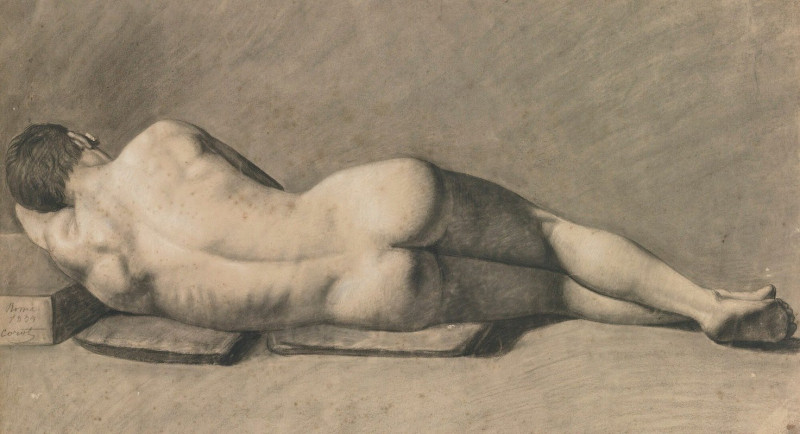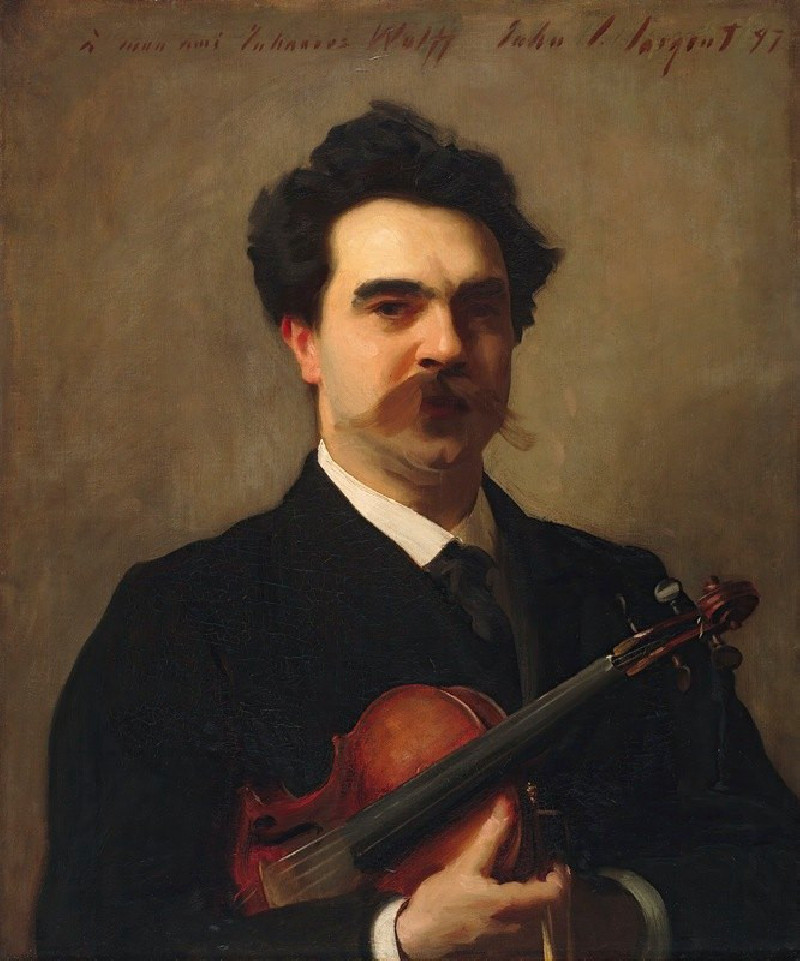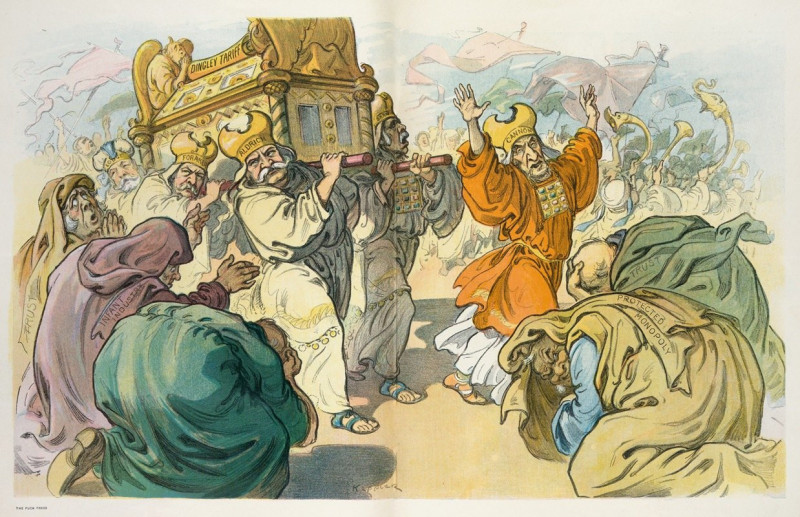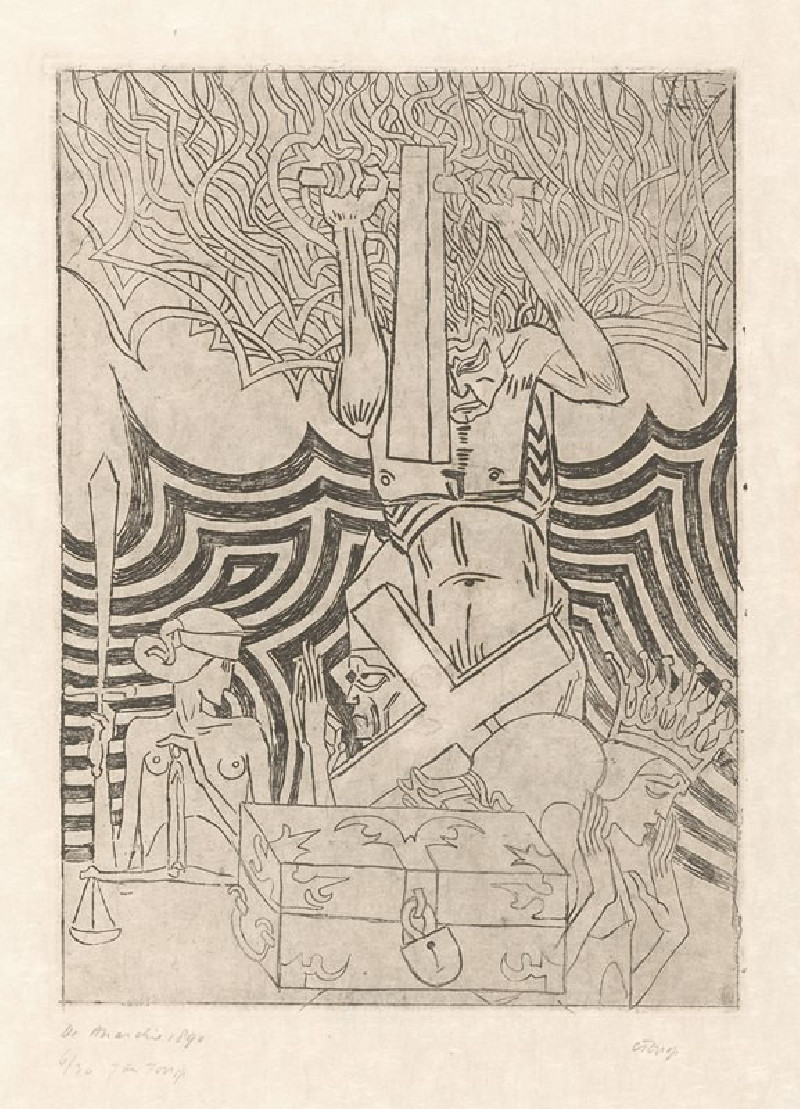Superstition has always ruled the world (1901)
Technique: Giclée quality print
Recommended by our customers
More about this artwork
Welcome to a captivating visual journey through the colorful and evocative artwork of Samuel Ehrhart. His illustration titled "Superstition has always ruled the world" serves as a vivid commentary on the persistence of superstitions across various eras and societies. Created in 1901, this piece holds a mirror to human nature, reflecting both historical and contemporary sentiments.The piece is richly segmented into several vignettes, each portraying different forms of superstition from various historical and social contexts. In one panel, Ehrhart depicts an "early hike," where a group in humble attire huddles around a mystical figure, suggesting ancient, possibly pagan, rites. Moving forward in time, another scene shows robed figures watching the stars, labeled “The Millerites, waiting for the world to come to an end,” capturing the 1840s American religious movement known for its apocalyptic expectations.Central to the composition is a striking figure of a wizard manipulating the globe, symbolizing the continuous human belief in mystical forces influencing the world stage. This central image acts as a pivotal point, linking the past to the present.Progressing to more modern superstitions, Ehrhart humorously illustrates "The Dowrie’s short-cut to Heaven" and “The superstition of modern Drug worship,” delving into the realms of consumerism and the pharmaceutical reliance in contemporary society. Additionally, scenes portraying the allure of get-rich-quick schemes and the “profitable 'religion' of Christian Science,” reflect societal gullibility and the exploitation of such naiveté for financial and manipulative gain.
Delivery
Returns
American cartoonist and illustrator born in Pottsville, Pennsylvania, Ehrhart received his education in the New York City school system. Subsequently, he studied art in Munich. His work appeared in Harper's Monthly (1878-79), Puck (1880, and 1888-1913), and Judge (1887). He died in Brooklyn, New York on October 26, 1937.



